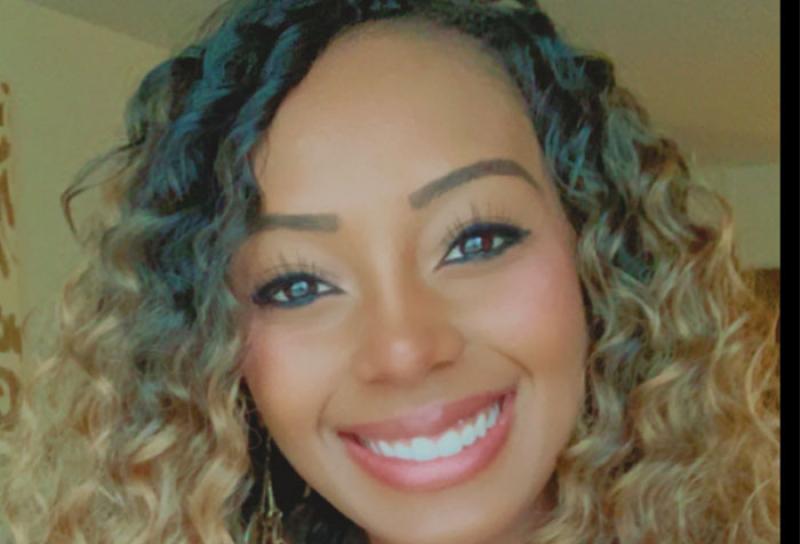
MPH student Stacia Simmons talks about her Applied Practice Experience
Students in the Master of Public Health program in the College of Applied Health Sciences at the University of Illinois have had to adjust their internships—known as Applied Practice Experiences—because of the ongoing COVID-19 pandemic. Periodically, we will speak with them about how those changes have affected their summer plans and potentially career paths. Today, we speak with Stacia Simmons, who is working on the contact tracing team at the Champaign-Urbana Public Health District and the Howard Brown Health Center in Chicago.
Q: Are your experiences different from what you expected?
A: Yes. with everything being shut down due to COVID-19, I wasn’t sure what to expect as far as my experience. I originally expected to be doing work with the Narcan and Prep program at CUPHD, however that shifted once Illinois was ordered to shut down. Shortly after, I was notified that everything would be done remotely and that my role at CUPHD would have to change. Fortunately, the Champaign Public Health Department offered me a position to work onsite as a contact tracing intern. In addition, Howard Brown Health Center in Chicago also offered me a remote contact tracing intern position, and I gladly accepted both positions. My experience so far has been amazing in that the work that I am doing directly aligns with my career interest which is infectious disease prevention/treatment. Therefore, being able to gain firsthand public health experience and to also be able to do my part in helping stop the spread of covid19 has been wonderful. It is also great in that working for two different health departments allows me to serve two different populations and it’s also very interesting to see the differences in approach in regard to the roles of contact tracers between both health departments. Both have exceeded beyond my expectations. Overall, it’s a blessing to be interning at both departments.
Q: You have worked in two facilities doing contract tracing. What differences have you noticed between them?
A: There is a big difference between the population that we serve through CUPHD than at HBHC. Chicago is a much bigger city with a lot more cases, therefore the roles of a contact tracer are slightly different also how things are structured. At CUPHD, the contact tracing unit is split into teams. They have a group of staff who conduct interviews, a group of staff that complete contact tracing and another group of staff that handle data entry and logistics. Contact tracers at CUPHD are in charge of completing daily wellness check calls to isolation and quarantine cases, while interviewers conduct interviews with confirmed cases to identify close contacts. At HBHC, there is one big team of contact tracers whose role is to conduct interviews and identify close contacts however, they do not follow up with cases as CUPHD does. With so many confirmed cases and a need for more contact tracers within the Chicago area, much of our time spent as contact tracers are obtaining information about close contacts.
Q: Does your APE work lead you to think about a different career path?
A: No, in fact it reassures me that I am in the right career path for me.
Q: What happened to your original APE?
A: Originally, it was planned for me to take part in a different role at CUPHD, however things shifted to working remotely. Fortunately, they have still allowed me to work onsite as a contact tracer instead.
Q: Are you working remotely?
A: For HBHC, yes, I am but, for CUPHD, I work onsite.
Q: Has anything been frustrating about your change in APE status?
A: In the beginning I was a bit nervous because I wasn’t sure what to expect, however things have turned out very well for me. I am fortunate to have not experience anything frustrating about the change.
Q: What are you missing out on because of the pandemic, in terms of working face-to-face with people?
A: In working remotely with HBHC it doesn’t allow for me to have the onsite experience as I have with CUPHD, however I am still able to interact and network with other contact tracers as we all have a weekly meeting where we all get to touch base. Overall, it works out that I am able to work remotely from home for HBHC, seeing that I reside in the Champaign area.
Q: What advice do you have for future students who might have disrupted internships or APEs?
A: Make the best out of every experience. Yes, it can be very frustrating to have your internship disrupted, however there are other opportunities out there for you to take advantage of. Public health is a broad field filled with plenty of opportunities and it is vital that you put yourself out there and connect and network with others in which will open more opportunities for you later. Be open and flexible to change because it could be a blessing in disguise.
Q: What other ways has COVID-19 affected you? Have you traveled? Have you been able to go home, see family?
A: COVID-19 has definitely made it interesting in my household as I balance internship duties, and being creative in keeping life interesting and fun for my wonderful seven-year-old son. I haven’t traveled much as I am very busy with both internships and also working part-time as a preschool teacher. I am what you call a “towny”—Champaign is where I was born and raised, and luckily all of my family still resides here in town as well so I am able to see them.
